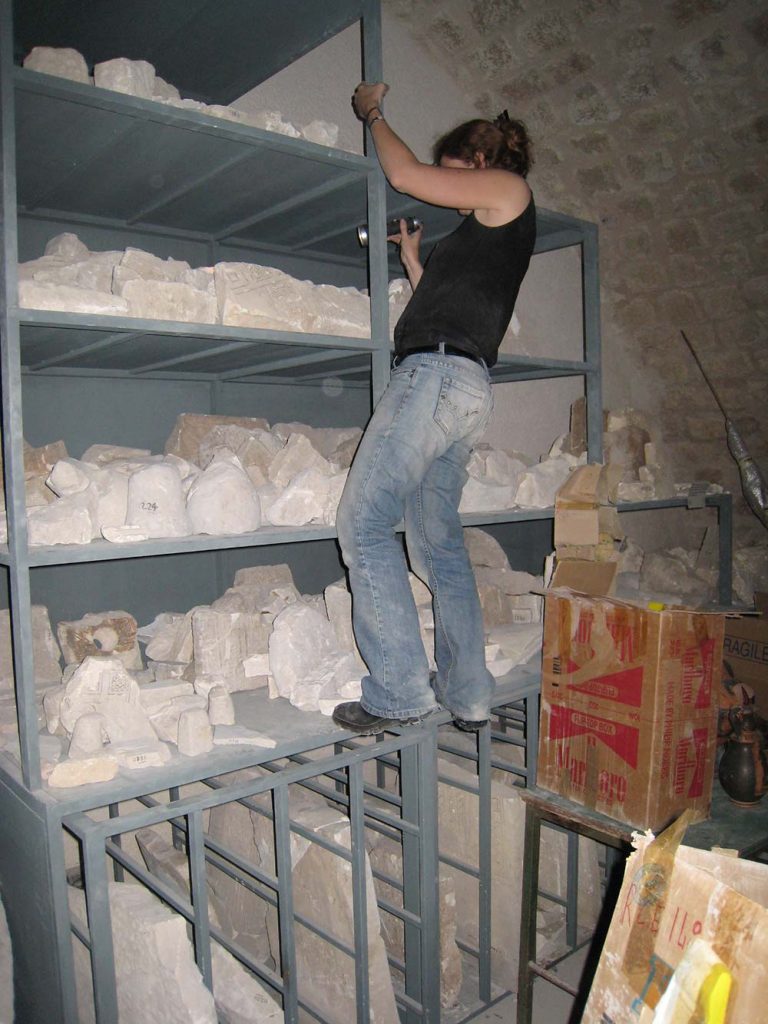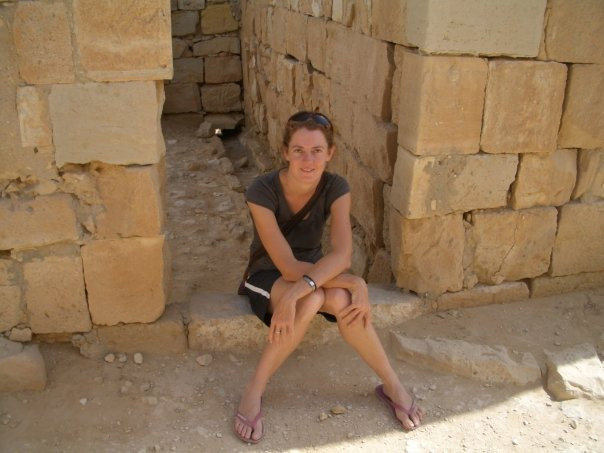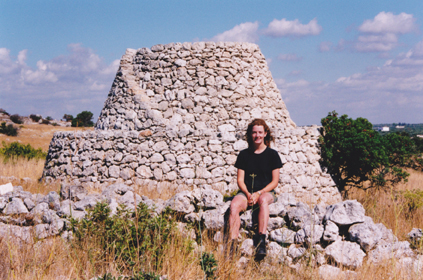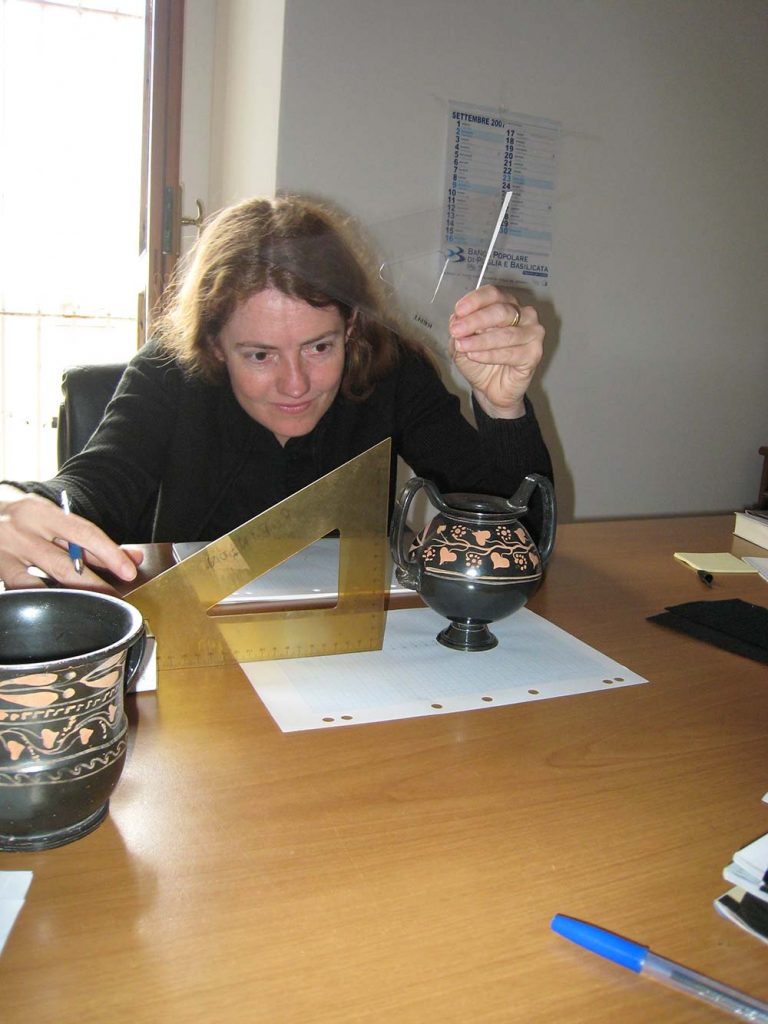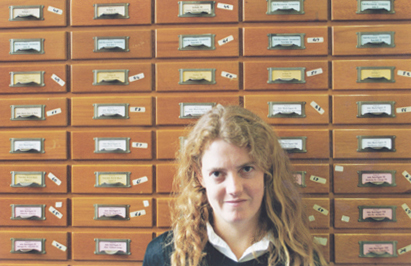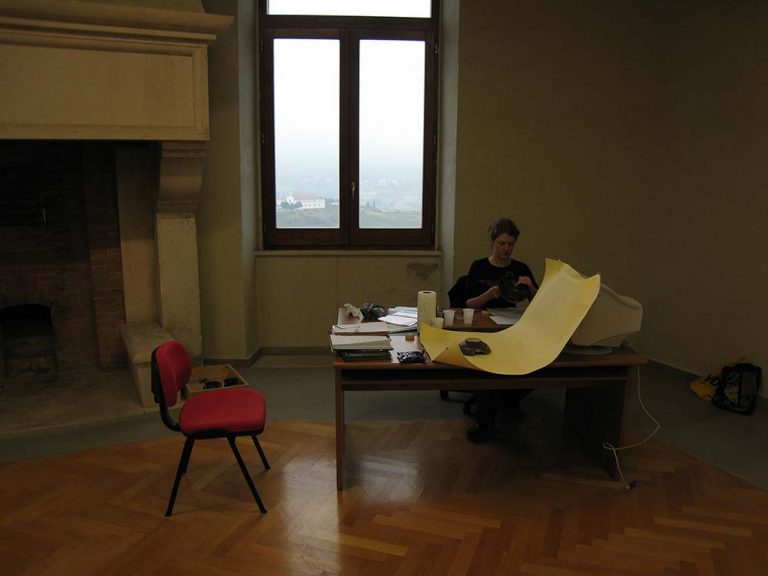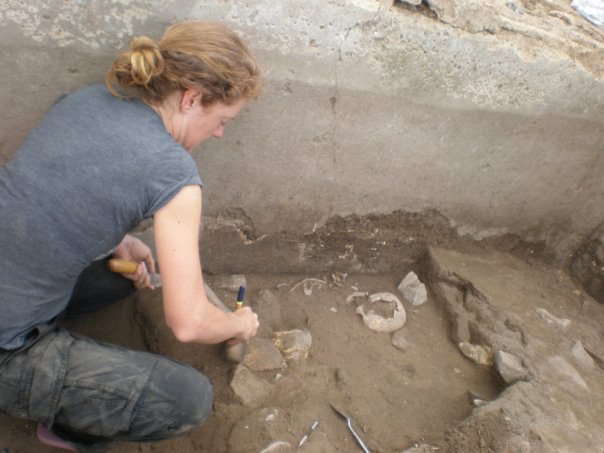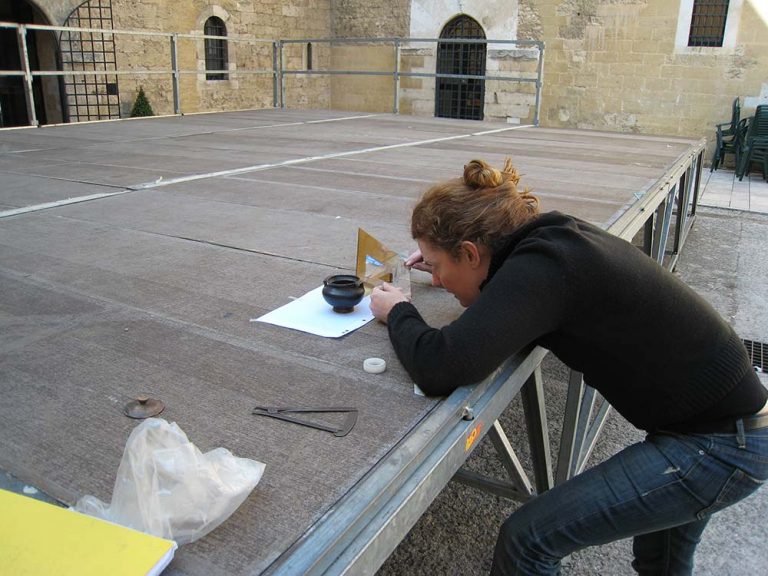CAMILLA NORMAN – ARCHAEOLOGIST and Project Officer, AAIA Production Manager, Mediterrenean Archaeology
Why do you think archaeology is important?
Because by knowing about our past, and the achievements and setbacks of humankind in general, we can better understand our present and plan for the future of our people and planet. An appreciation of different cultures, of their history and beliefs and modes of life, also helps people to be more open-minded and tolerant – something which is critical in the globalised and intensely populated modern world.
When did you know you wanted to be an archaeologist, and what was it that made you want to be one?
Not until I was at University, but with a background in art and science it was a good middle ground. I’d always been told I should be an engineer – that didn’t feel right so I skipped the queue on enrolment day and signed up for archaeology instead, almost on a whim. I’d always been interested in old things and in digging about in the dirt, and stories from the ancient world. But archaeology seemed like a kid’s fantasy job, up there with being a fireman or an astronaut. That fateful day I switched queues I was throwing caution into the wind. I never looked back!
Archaeology came naturally: I liked the diversity of work, how challenging it was, the people, the travel, and constantly learning about new things. And funnily enough now I know not only archaeologists, but have a friend who became a fireman and one who is well on her way to being an astronaut as well!
What study did you do to become an archaeologist?
I did a BA(hons) at Sydney University majoring in Classical Archaeology. As an undergraduate I also studied Near Eastern archaeology, plus ancient history, classics and philosophy. And a little maths and Australian archaeology. In 2008 I began a PhD, writing a thesis on the Iron Age Stelae of Daunia in Southern Italy. I’ll have it submitted by Christmas 2012. My speciality is pre-Roman Italy so I’ve learnt Italian along the way too (but am still not very good at speaking it, unless it’s to talk about archaeology or food!)
How long have you been an archaeologist?
I’ve been employed in various capacities within the field of archaeology ever since completing my undergraduate degree in 1994, but I don’t think I really ‘became’ an archaeologist until after a good many years more experience.
What are some of the key jobs you’ve had?
It’s not the typical story, but I’ve never had to work other jobs to support my archaeology habit. Which bespeaks of luck as much as talent! And an absence of the burning desire for a disposable income. I’m a very visual person and, just after I finished my BA, was offered the job of running the University of Sydney Archaeology Department’s slide library – back in the mid 90s when lecturers didn’t have thousands of images stored on their computers, the internet was in its larval stage, and everyone still lugged around slide carousels rather than USB sticks. I spent a number of happy years in the attic of the Main Quad of Sydney Uni surrounded by tiny pictures, teaching myself about digital technology as it was being invented and absorbing all those images of ancient places, buildings and objects from all over the Mediterranean and beyond.
At the same time I was research assistant to the Associate Professor of Classical Archaeology, and together we ran (and still do, even though he’s been in Geneva since the late 90s) the journal ‘Mediterranean Archaeology’. From that I got into publishing and copy-editing, and in 2004 started working at the AAIA on their publications too, as well as organising public lectures and helping with whatever crops up.
I get into the field whenever I can and have done a bit of everything: excavation, surveying, artefact drawing, site planning and photography. These days I normally run the ‘pot sheds’ where we oversee the care, recording and storage of finds after they’ve come out of the ground. But I never go more than a few days without checking what’s happening on site too, and will happily jump in with trowel if an extra pair of hands are needed.
What skills or capabilities do you think are important to being a good archaeologist?
You need different skills depending on what sort of archaeologist you want to become, but in general the best characteristics to have are the ability to adapt to any situation, common sense, good logic and spatial awareness, tolerance & understanding of others, a curious mind, and above all a sense of adventure. More and more you need good computing skills too.
What advice would you give to someone interested in this career?
Learn as many modern languages as you can! Take every opportunity that comes your way, and listen to the people you work with and among.
How do archaeologists spend their time?
I spend most of my time at a desk (largely engaged in desk-top publishing and event management), and about 2 months a year overseas either on excavation, at conferences or on research trips. At my ‘desk job’ in Sydney at the AAIA we have constant visitors coming through from all over the world, and there are many functions, seminars and lectures to attend. It’s always busy, and rarely dull!
What’s it like living in the ‘dig house’ during a dig?
It’s brilliant. Even when it’s bad (and it can get very bad) it’s brilliant. Living and working for that length of time on top of people who share your passion is extraordinary. You live, breathe and dream archaeology. Hopefully you get to experience the modern culture of the region too, and get to know some of the locals. The places I tend to work are rural and not frequented by tourists, so this is incredibly rewarding. Especially if you’re returning to the same town time and time again.
Being on dig is intense and every moment is bright and shiny. The days start early and – at least for those of us in the pot shed, where there is usually so much material to process and no light or heat constraints – end late. Often the pot sheds are in the dig house (both for ease of access and security) so you can go right back after dinner and keep on going (eased by a glass of the local red). Or if the pressure is off, you can sit around the table (again eased by a glass of the local red) and chat into the wee hours. Then do it all again the next day! With some of the best friends you’re ever likely to make.
Which parts of your job do you love, like, not so much….?
The incidental travel to amazing and random places, the people you get to know from all over the world, and just basically getting dirty for a living. I can’t think of much that’s bad. Funding is never easy…
How do you and your family cope with separation during archaeological digs?
When I started going on digs you had to write a letter home. There were no mobile phones or email. I got used to it and so did my family, so still I don’t contact them much when I’m away. But I’ve never been the sort to get homesick. Instead when I get back we all get together and exchange stories then. And still I write the odd letter!
As for partners, if you go out with an archaeologist you can simply take them with you.
What’s been your worst experience in archaeology?
They mainly involve survey and vicious packs of dogs.
What’s been your best experience in archaeology?
The relief I feel when the hunter finally turns up, after I’ve been staring down the vicious pack of dogs.
What’s your realistic and/or dream hope of archaeological achievement?
The time I’ve been at the AAIA I’ve watched it grow and grow. I’m already proud of being a part of that, especially knowing how much hard work my colleagues have put into it. It has all been achieved with no government backing, but instead the kind and generous support of the interested public. I’d like to see the AAIA continue to develop and strengthen, for more and more Australian archaeologists and historians to work and study in Greece, and to one day open an office in Italy so that we can support projects there as well!
